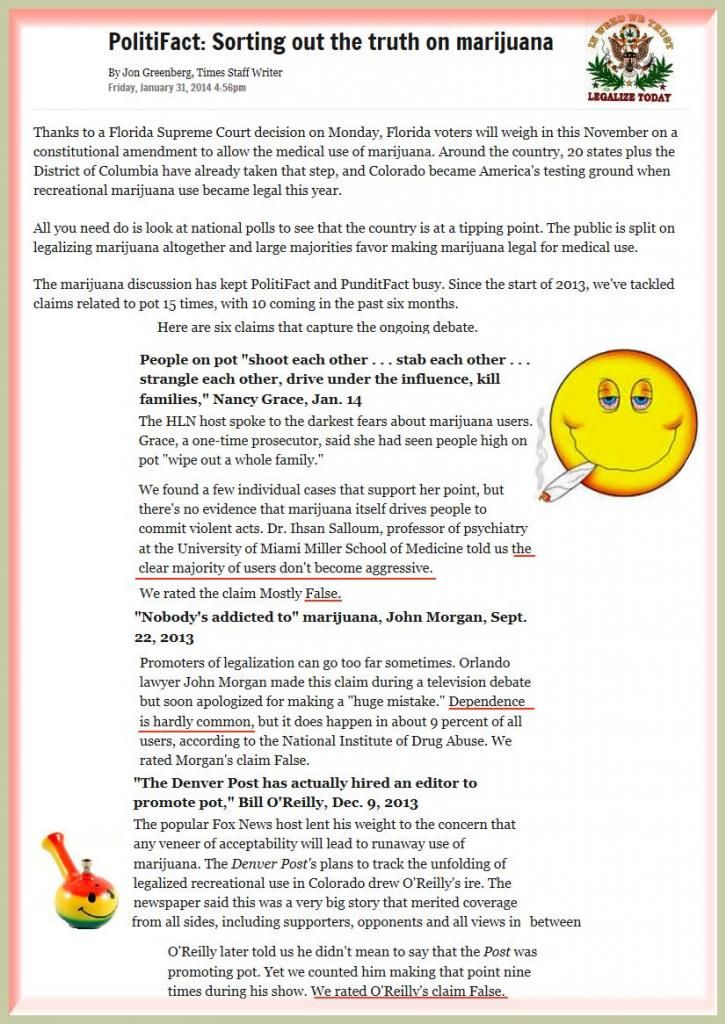Colorado's Last Hurrah For Common Sense!
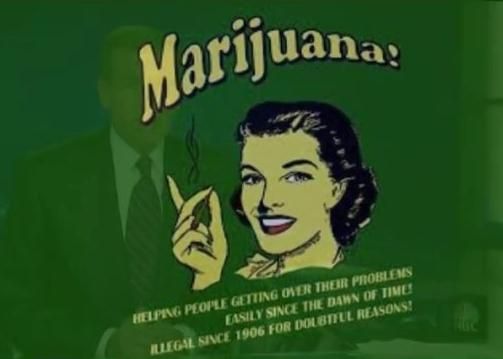
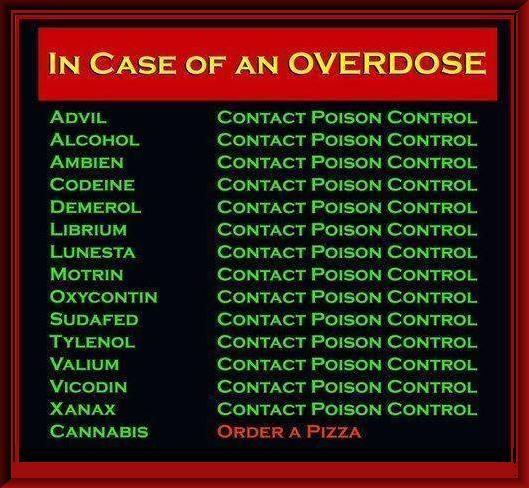
Yes, there are two Americas’ Virginia, they exist as certainly as love and generosity and devotion exist. One tolerant and broadminded, the other intolerant and narrow-minded! Sincerely, thinkingblue, from the TOLERANT AND BROADMINDED USA PS: Joe (You Lie) Wilson, et al reside in the other America!


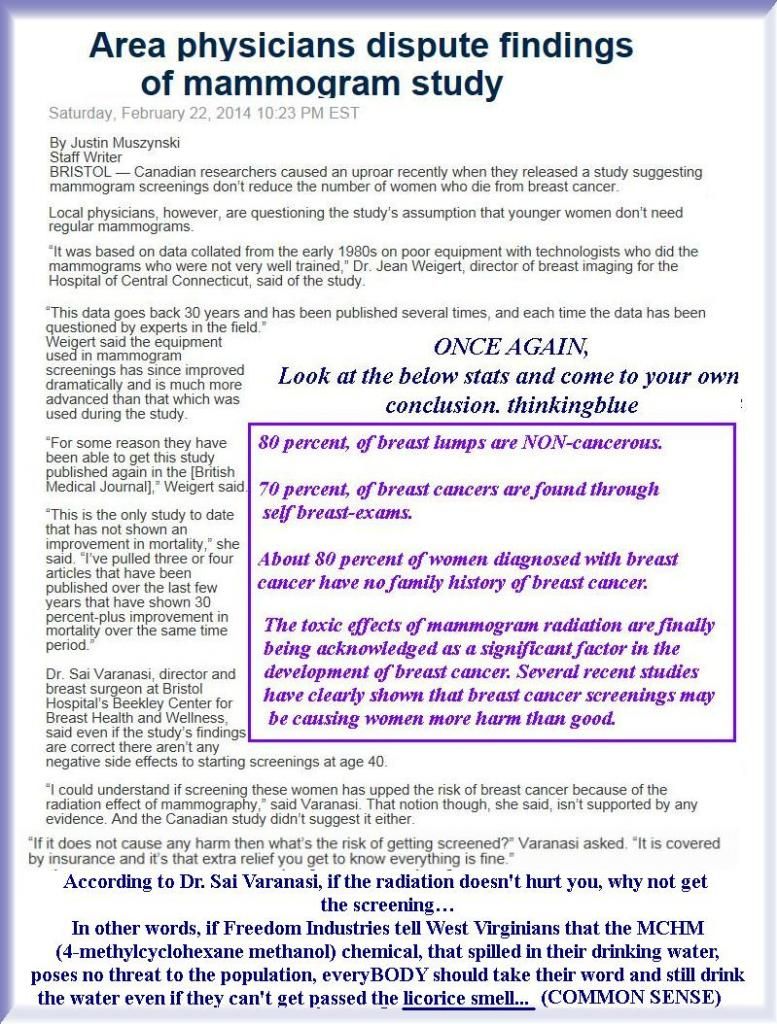





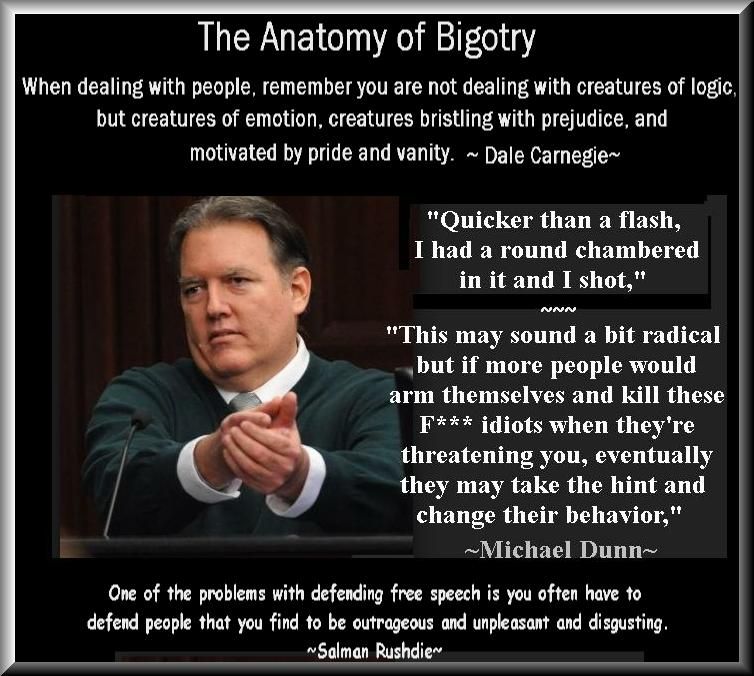



80 percent, of breast lumps are NON-cancerous.70 percent, of breast cancers are found through self breast-exams.About 80 percent of women diagnosed with breast cancer have no family history of breast cancer.The toxic effects of mammogram radiation are finally being acknowledged as a significant factor in the development of breast cancer. Several recent studies have clearly shown that breast cancer screenings may be causing women more harm than good.MORE HERE: http://articles.mercola.com/sites/articles/archive/2012/03/03/experts-say-avoid-mammograms.aspx
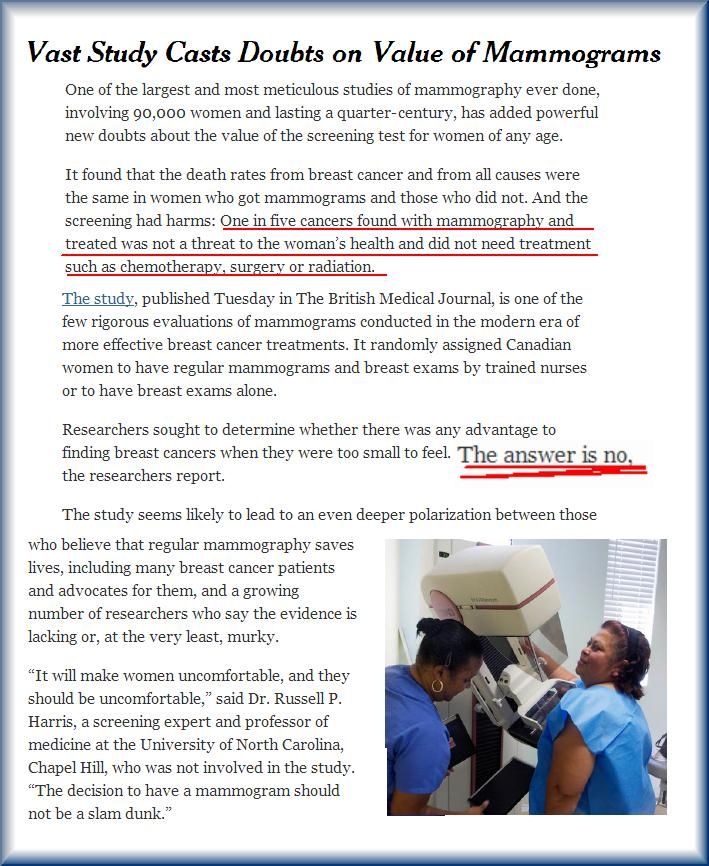
Risks and dangers of mammography in women younger than age 50:Higher risk for breast cancer risk due to radiation exposureRoutine mammograms in young women increase the risk for future breast cancer due to direct radiation exposure to breast tissue. For young women who have a high risk of breast cancer because of genetic mutations, the radiation from yearly mammograms may make the risk even higher. It is quite possible that women who may never have developed breast cancer in their lifetime may get this disease in their 50s, 60s, or later, from having routine yearly mammograms in their 30s or 40s. We are exposing millions of young women to such radiation without fully understanding the future impact. Low-dose radiation from mammograms and chest X-rays increases the risk of breast cancer in young women who are already at high risk because of family history or genetic susceptibility. High-risk women, especially those under 30, may want to consider switching to an alternative screening method such as magnetic resonance imaging, or MRI, which does not involve exposure to radiation. The annual mammograms gives a much higher dose of radiation than a typical chest x-ray. and it has accumulative effect on the body. In addition to exposing the body every year to radiation, many women must have additional screening when they receive a false-positive result, adding to further radiation exposure. Nobody knows exactly how much the risk for cancer is increased due to having regular mammograms in young women, but it is quite possible that the medical establishment and the American Cancer Society are not emphasizing this risk, or are not aware of it, as much as they should.The premenopausal breast is very sensitive to radiation, each rad of exposure increasing breast cancer risk by 1 percent, resulting in a cumulative 10 percent increased risk over ten years of premenopausal screening, usually from ages 40 to 50. Risks are even greater for "baseline" screening at younger ages, for which there is little or no evidence of any future relevance. Statistically, some women have approximately as much chance of getting breast cancer from repeated mammograms as they have of the testing finding earlier cancers. Yes, you might be one of those rare women whose life expectancy may be enhanced by early detection. But you might also be someone who develops breast cancer from the yearly radiation exposure. See this excellent article written by a respected university affiliated medical doctor that reviews the risk of radiation from mammography and exposes the profit motive of certain corporations and organizations, and forward this article to anyone who you think would benefit, including your doctor,http://www.thehastingscenter.org/Bioethicsforum/Post.aspx?id=4194Article Here: http://www.raysahelian.com/mammography.html
Who invented the first mammography machine?X-rays were used until 1966 when the first mammography machine was developed. Albert Salomon is considered to be the inventor of breast radiology. Source(s): http://www.gehealthcare.com

Eighty-two percent of Floridians support the legalization of medical marijuana, but Gov. Rick Scott isn't one of them. Apparently, despite the broadly supported issue heading to the ballot at the same time as his re-election, Scott announced he would vote against legalization.
According to the Associated Press, a spokesman for Scott said the governor "has empathy for people battling difficult diseases, but he's also seen the damage drug abuse can do."This isn't much of a surprise. Scott supported Attorney General Pam Bondi's unsuccessful efforts to keep the issue off the ballot based on the wording of the question.However, it might not be the best move for his re-election chances. According to the latest Quinnipiac poll, Scott's stance places him among only 16 percent of Floridians who don't support the legalization of marijuana for medical purposes.The issue will likely have ramifications in Scott's re-election campaign, during which he's widely expected to face now-Democrat Charlie Crist. Democratic strategists hope the issue brings out more liberal-minded voters en masse to the midterm election.
MORE HERE: http://blogs.miaminewtimes.com/riptide/2014/01/rick_
scott_wont_vote_for_medic.php
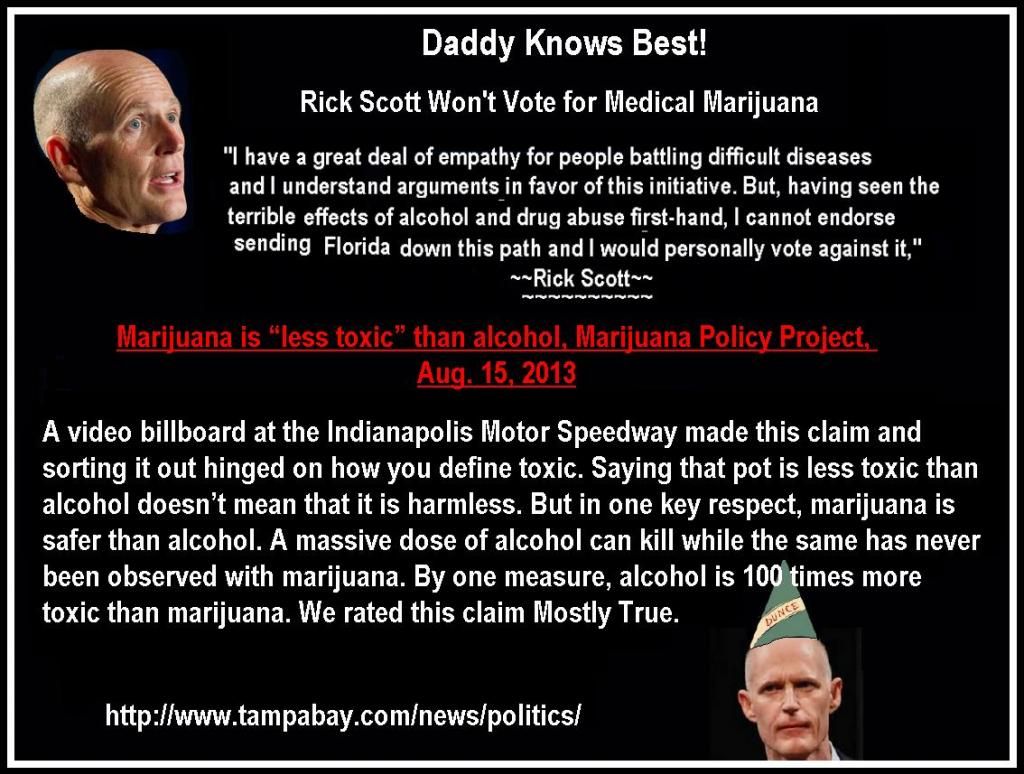
Marijuana is "less toxic" than alcohol, Marijuana Policy Project, Aug. 15, 2013A video billboard at the Indianapolis Motor Speedway made this claim and sorting it out hinged on how you define toxic. Saying that pot is less toxic than alcohol doesn't mean that it is harmless. But in one key respect, marijuana is safer than alcohol. A massive dose of alcohol can kill while the same has never been observed with marijuana. By one measure, alcohol is 100 times more toxic than marijuana. We rated this claim Mostly True. (Click Here For More)
